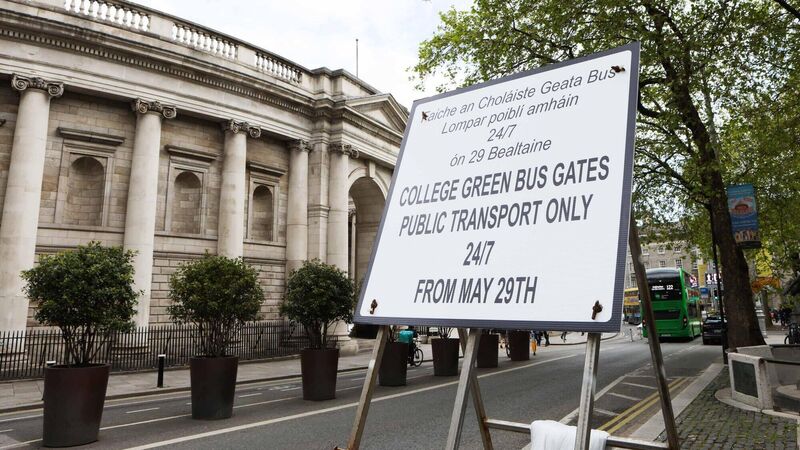Letters to the Editor: Dublin car-ban plans need the goodwill of businesses

A sign on College Green in Dublin City centre announcing that from the end of this month the road is being closed to all private vehicles, and will be open to public transport only. Picture: Leon Farrell / RollingNews.ie








